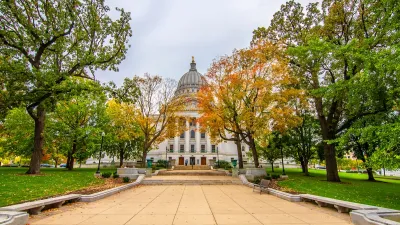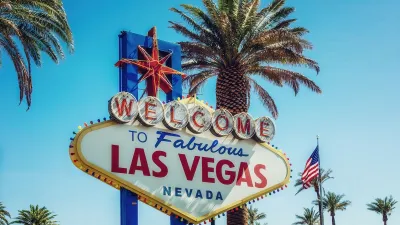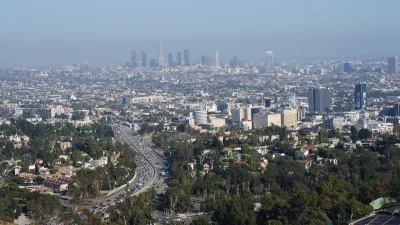Nate Berg reports on several recent pilot studies that have quantified the economic, aesthetic and energy saving benefits of urban trees and why the costs for replacing them can be formidable.
While the aesthetic value of street trees may be easy to appreciate, a recent study of Tennessee's urban trees aimed to monetize the much wider range of benefits that such trees can provide to their communities, demonstrating that such benefits can amount to millions in savings.
According to the Forest Service of the U.S. Department of Agriculture, who released the results of their pilot study earlier this year, "through energy savings, air and water filtering and carbon storage, the urban trees of Tennessee account for more than $638 million in benefits," without considering aesthetic values.
"The method used for estimating tree values is commonly used and was developed by the Council of Tree and Landscape Appraisers." Indiana, Wisconsin, New Jersey and Colorado have also started to appraise the value of trees by conducting similar pilot studies, notes Berg.
The Tennessee report also calls attention to the cost of threats to trees from various invasive species and diseases. "If every urban tree in the state were to die, the cost of replacing them is estimated at $79.5 billion." The astronomical price tag highlights the importance of doing more work to counteract these dangers.
FULL STORY: The High Cost of Losing Urban Trees

Alabama: Trump Terminates Settlements for Black Communities Harmed By Raw Sewage
Trump deemed the landmark civil rights agreement “illegal DEI and environmental justice policy.”

Planetizen Federal Action Tracker
A weekly monitor of how Trump’s orders and actions are impacting planners and planning in America.

Why Should We Subsidize Public Transportation?
Many public transit agencies face financial stress due to rising costs, declining fare revenue, and declining subsidies. Transit advocates must provide a strong business case for increasing public transit funding.

Understanding Road Diets
An explainer from Momentum highlights the advantages of reducing vehicle lanes in favor of more bike, transit, and pedestrian infrastructure.

New California Law Regulates Warehouse Pollution
A new law tightens building and emissions regulations for large distribution warehouses to mitigate air pollution and traffic in surrounding communities.

Phoenix Announces Opening Date for Light Rail Extension
The South Central extension will connect South Phoenix to downtown and other major hubs starting on June 7.
Urban Design for Planners 1: Software Tools
This six-course series explores essential urban design concepts using open source software and equips planners with the tools they need to participate fully in the urban design process.
Planning for Universal Design
Learn the tools for implementing Universal Design in planning regulations.
Caltrans
Smith Gee Studio
Institute for Housing and Urban Development Studies (IHS)
City of Grandview
Harvard GSD Executive Education
Toledo-Lucas County Plan Commissions
Salt Lake City
NYU Wagner Graduate School of Public Service





























